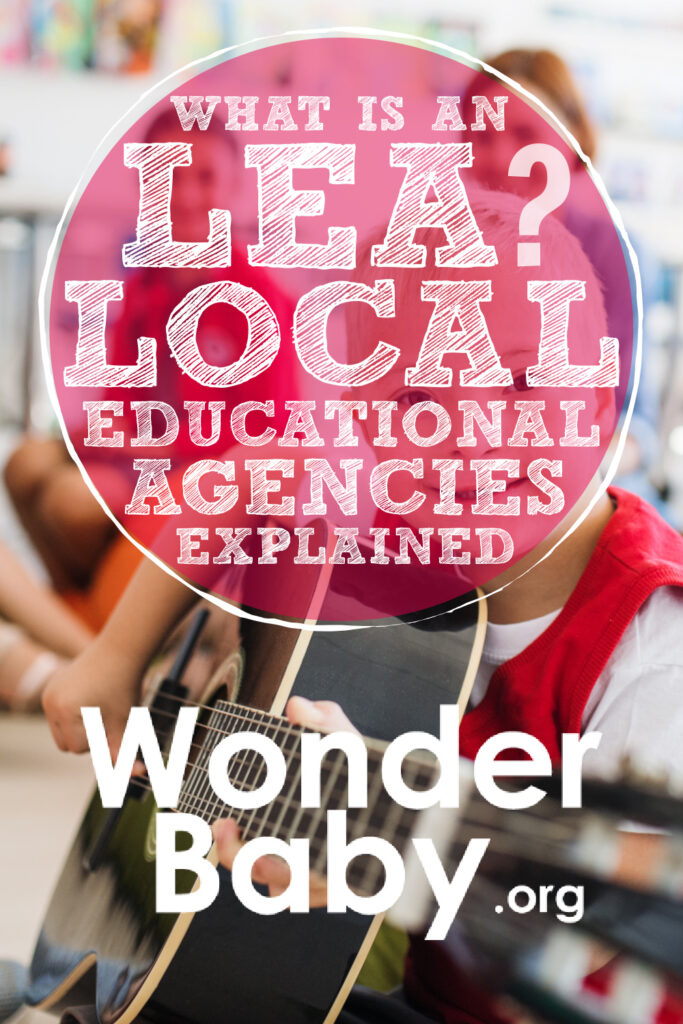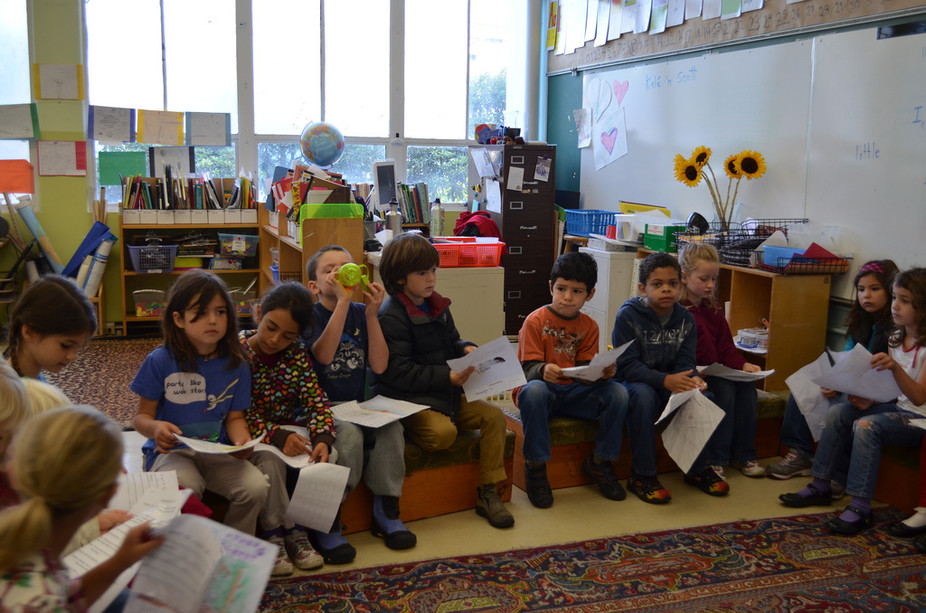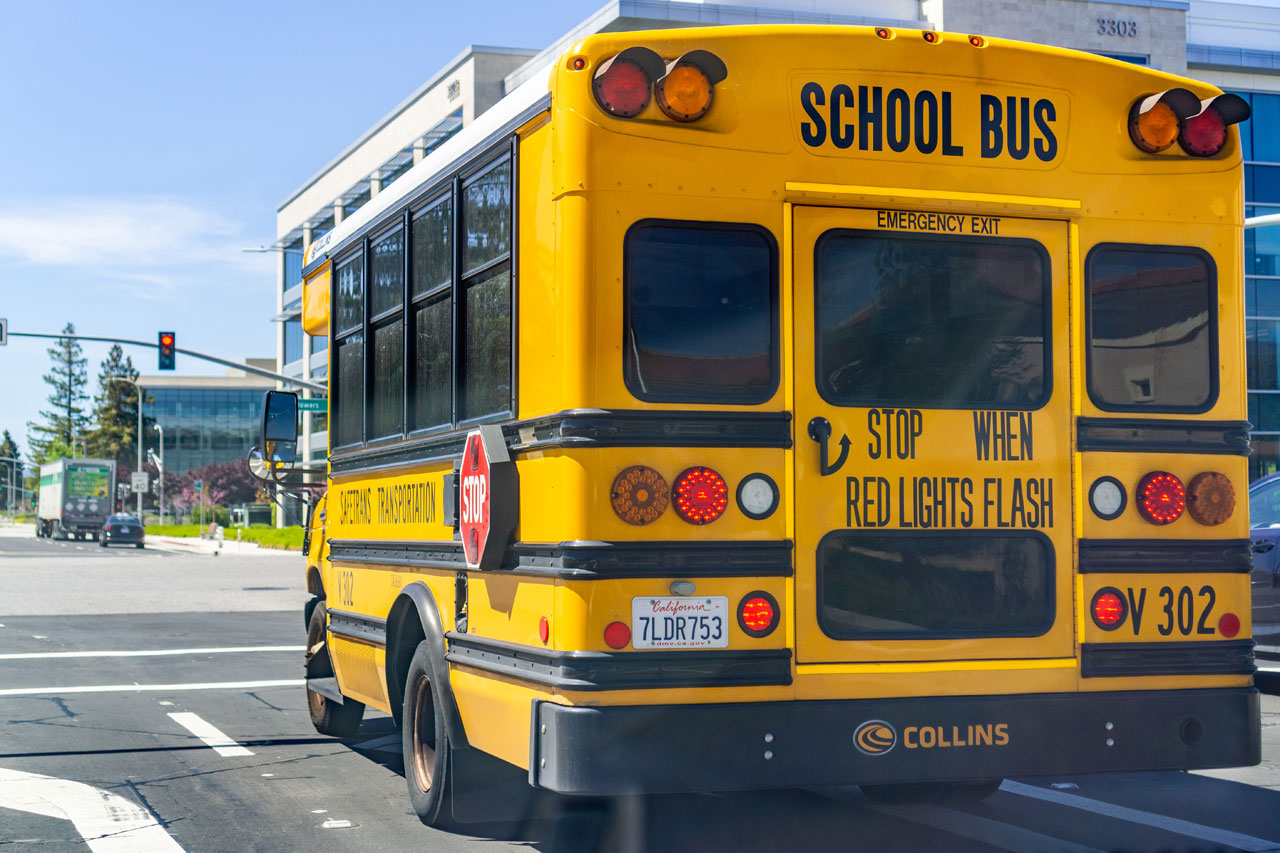Helping Your Baby Reach Greater Wonders

What Is an LEA? Local Educational Agencies Explained

- LEA is a local educational agency as defined by IDEA, the key federal law that guarantees the educational rights of children with disabilities.
- An LEA is the agency, body, or public authority legally constituted to govern the public elementary and secondary schools in an area of residence within a state, such as a school district or board of education.
- An LEA representative is a mandated member of a child’s IEP team, which develops their individualized education program.
- LEAs are charged with allocating resources to effectively implement special education services for students under their supervision.
Among the many special education acronyms that parents of students with disabilities will hear are three letters – LEA. LEA stands for local educational agency and refers to the public school authority in a given area of a state, such as a school district or a board of education. It also includes charter schools and other education service agencies.
LEAs have a big job. They are the organizations and agencies responsible for ensuring that special education services are provided to children with disabilities in compliance with federal and state law.
They are obligated to ensure that students with disabilities who are eligible for special education services receive a free and appropriate education alongside their non-disabled peers in an environment that is inclusive and accessible. LEAs are the agencies in charge of making sure each student’s individualized education program is implemented.
LEA Under IDEA

Special education for children with disabilities is governed by the Individuals with Disabilities Education Act 1 1. Individuals with Disabilities Education Act (IDEA). U.S. Department of Education . https://sites.ed.gov/idea , known as IDEA. IDEA is the federal law that protects the right of children with disabilities to a free and appropriate public education (FAPE) in the least restrictive environment (LRE).
The terms parents often hear in discussions about special education, like FAPE, LRE, IEP, or IFSP, are all defined in IDEA. Individual states are required to implement IDEA in their schools through local educational agencies.
Because individual states are responsible for implementing IDEA in their schools, the way special education services are provided from state to state will vary. However, the fundamental principles of special education provision in state law are governed by federal law through IDEA.
How does IDEA define an LEA?
A local education agency, LEA, is defined in IDEA 2 2. Sec. 303.23 Local Educational Agency. Individuals with Disabilities Education Act . 2017. https://sites.ed.gov/idea/regs/c/a/303.23#:~:text=Local%20educational%20agency%20or%20LEA,township%2C%20school%20district%2C%20or%20other as a public board of education, educational service agency, administrative agency, intermediate educational unit, or other public authority in a state that has administrative control over the public elementary and secondary schools within a specific area of residence, such as a school district, city, county, or other political subdivision.
IDEA also states that charter schools, special education agencies, and schools funded by the Bureau of Indian Education (BIE) are all LEAs and must conform with IDEA.
A local school district that covers one or several counties in a state, a city board of education, or a public charter school are examples of local educational agencies.
LEAs and Special Education

The local educational agency is the body primarily responsible for implementing and supporting special education services that comply with the principles mandated by IDEA for the provision of education to children with disabilities.
It is the role of the local educational agency to put the special education mandates in IDEA into practice for students with disabilities in accordance with state law and regulations set by the state educational agency (referred to as the SEA).
Where the state educational agency deals with statewide issues like curriculum standards, the local educational agency does the practical work of implementing special education services in the public primary and secondary schools in their school districts.
There is a lot of pressure on LEAs, both internally and externally, and their effectiveness depends on communication, collaboration with schools, and sufficient practical and financial resources to provide an appropriate education to students with disabilities.
Compliance with the law
It is the responsibility of LEAs to ensure that the schools they supervise implement the following under IDEA:
| Free and appropriate public education (FAPE) | |
| Least restrictive environment (LRE) | |
| Development of individualized education programs (IEP) |
Resource allocation for special education services
The LEA is also responsible for allocating resources for staff, programs, interventions, and other special education supports like technological aids for students with disabilities.
The local educational agency is responsible for ensuring that IEPs have the funding, staff, resources, and materials necessary to implement the programming that students with disabilities need to access their education effectively.
Implementation of IEPs and the Role of the LEA Representative

Under IDEA, every child who is evaluated and assessed for an educational need and deemed eligible for special education services must be provided with an individualized education program or IEP.
The LEA is responsible for the process of IEP development and resource allocation to implement IEPs for students with disabilities.
What is an IEP?
The IEP 3 3. Sec. 300.320 Definition of Individualized Education Program. Individuals with Disabilities Education Act . 2017. https://sites.ed.gov/idea/regs/b/d/300.320 is a document that details the supports and services that will be made available to a student with a disability. It specifically addresses the following:
- The student’s educational needs and strengths
- Goals for the student’s progress
- A list of the special education services to be provided and the professionals involved in their provision
- The least restrictive environments in which these services will take place
- Dates and places for the provision of services
- Transition services at age 14 and age 16
- Details of how progress will be measured
Under IDEA, an IEP is developed and written by an IEP team that must include teachers, parents, school staff, therapists, anyone who knows the child well and will be involved in providing services, or anyone that parents ask to include as part of the team.
In addition to these participants, an LEA representative is a mandated member of the IEP team.
What does it mean if there’s an “LEA” on my child’s IEP team?
Often when parents hear the term LEA, it is in reference to the LEA representative on their child’s IEP team.
A school principal, special education teacher, or regular education teacher may be referred to as “the LEA” on the IEP team.
The role of the LEA representative 4 4. Section 1414 (d). Individuals with Disabilities Education Act . 2019. https://sites.ed.gov/idea/statute-chapter-33/subchapter-ii/1414/d is also defined in IDEA, and they are a mandated member of the child’s individualized education program team.
The LEA representative is appointed by the LEA, for example, the school district, and is:
- Qualified to provide or supervise the special education programs designed for children with disabilities
- Knowledgeable about the general education curriculum
- Knowledgeable about the availability of resources of the LEA
The last criterion on the list is particularly important. The LEA representative is the person who knows what resources are available, both financial and practical, to provide for the activities, instruction, teachers, and programs recommended in a child’s individualized education program.
The job of the LEA representative
The LEA representative should have the authority to approve the allocation of special education resources. For example, if speech therapy is part of a child’s IEP, the LEA representative should know whether staff and funding are available to provide that therapy for the child within the LEA.
The LEA should also understand special education law, advocate for the needs of students with disabilities , and ensure that the student’s IEP complies with the law. The LEA should work collaboratively with the IEP team to provide for the student’s needs.
Most often, the LEA representative is the school principal, the head of the special education department, a therapist, or a teacher. However, the LEA representative can be anyone the district appoints and authorizes to allocate resources and represent the interests of the district on the IEP team.
Parents should not feel that they are working against the LEA when requesting services for their child or that they are on an opposing team.
If parents feel that the LEA representative or the LEA is not in compliance with the law in providing for the educational needs of their child, there are procedural safeguards 5 5. Subpart E – subpart E-procedural safeguards. Individuals with Disabilities Education Act . 2017. https://sites.ed.gov/idea/regs/c/e in place under IDEA to help them.
Challenges Faced by LEAs

It is important to advocate for the rights of students with disabilities to ensure that they have access to the same educational resources as their peers and that they are receiving special education services that will help them progress from early years to elementary school, to secondary school, and beyond.
LEAs have a huge impact on the quality and effectiveness of the services a student with disabilities receives and on the resources that are available to them.
However, LEAs face many challenges:
| Funding and resource limitations | |
| Diverse needs within the community | |
| Balancing federal, state, and local mandates |
Because LEAs have to balance the interests and financial resources of their districts with the law and the needs of students with disabilities within their jurisdiction, parents may not always agree with their decisions or be happy with the provision of special education services that their child receives.
It’s important for parents to voice those concerns and to continue to advocate for their children. Clear communication between parents, teachers, school staff, and the LEA representative in IEP meetings is critical.
- Individuals with Disabilities Education Act (IDEA). U.S. Department of Education . (n.d.). https://sites.ed.gov/idea
- Sec. 303.23 Local Educational Agency. Individuals with Disabilities Education Act . (2017, May 2). https://sites.ed.gov/idea/regs/c/a/303.23#:~:text=Local%20educational%20agency%20or%20LEA,township%2C%20school%20district%2C%20or%20other
- Sec. 300.320 Definition of Individualized Education Program. Individuals with Disabilities Education Act . (2017, July 12). https://sites.ed.gov/idea/regs/b/d/300.320
- Section 1414 (d). Individuals with Disabilities Education Act . (2019, November 7). https://sites.ed.gov/idea/statute-chapter-33/subchapter-ii/1414/d
- Subpart E – subpart E-procedural safeguards. Individuals with Disabilities Education Act . (2017, May 2). https://sites.ed.gov/idea/regs/c/e

Related Posts

Autism, Behavior
OCD vs Autism in Children: How To Tell the Difference
OCD and ASD are fundamentally different, but their symptoms are very similar. Learn how to tell the difference to support your child.

Special Needs, Support
How Do You Keep Faith Alive When Your Child Remains Ill?
I understand the emotional toll of chronic illness, but I also believe in the power of faith and community to uplift and sustain us.

Toys, Visual Impairment
Barbie® Introduces the First Blind Barbie Fashionista Doll
Mattel, in partnership with AFB, announced the addition of a blind Barbie doll with white cane and sunglasses.
Get Email Updates from Ballotpedia
First Name *
Please complete the Captcha above
Ballotpedia on Facebook
Share this page
Follow Ballotpedia
Ballotpedia on Twitter
Local education agency.
This article does not receive scheduled updates. If you would like to help our coverage grow, consider donating to Ballotpedia. Contact our team to suggest an update.
A local education agency , or LEA , is a public authority that is designed to oversee the implementation of education policies as set forth by the federal government. An LEA typically refers to a district's local school board. Private schools do not fall under the jurisdiction of any nearby local education agencies, though they can collaborate on any given program. Some of the specific responsibilities of the LEA include the following:
- Enforcing adherence to federal standards
- Ensuring high-quality special education measures for students with disabilities
- Addressing criticisms of the district
- Reaching out to local communities to ensure all students within its jurisdiction receive a quality education [1] [2]
The United States Department of Education defines a local education agency as the following:
| “ | A public board of education or other public authority legally constituted within a State for either administrative control or direction of, or to perform a service function for, public elementary schools or secondary schools in a city, county, township, school district, or other political subdivision of a State, or for a combination of school districts or counties that is recognized in a State as an administrative agency for its public elementary schools or secondary schools. | ” |
Assistance programs
Local education agencies are responsible for making provisions for students with additional needs. The following details some of those groups and what is expected of LEAs when addressing related situations.
Homeless youth
Under the McKinney-Vento Homeless Education Assistance Improvements Act of 2001, it was determined that homelessness is not an excuse to deprive children of an education. This law defines homeless individuals as "individuals who lack a fixed, regular, and adequate nighttime residence." [4]
It is the LEA's responsibility to identify homeless youths in the community and ensure that they are given an education. Often, a liaison is selected as an agent of the LEA to work with other bodies such as church groups or law enforcement agencies to identify minors in homeless situations. When identified, the LEA is required to extend to that student all of the services offered to students with adequate housing, including after-school programs, free or reduced price lunch programs and referrals to medical, dental or other care facilities. [4] [5]
Students with disabilities
LEAs are required to provide, or oversee the provision of, special education programs for students with disabilities under the Individuals with Disabilities Education Act of 2004 (IDEA). IDEA requires LEAs to monitor and assist students with disabilities throughout their education. It compels schools to hire "highly qualified teachers" who are capable of delivering quality education to students under a variety of different circumstances. The act even requires LEAs to follow up with students who are hospitalized, moved to an alternate home, or detained for legal reasons. IDEA also outlines a large variety of different provisions to ensure that students with disabilities receive any and all care necessary, in addition to the same standard education given to all students. [6] [7] [8]
- United States Department of Education
- Education policy in the United States
External links
- McKinney-Vento Homeless Education Assistance Improvements Act of 2001
- U.S. Department of Education IDEA website
- ↑ Wisegeek.com , "What is a local education agency," accessed October 28, 2014
- ↑ 2.0 2.1 U.S. Department of Education , "Definitions," accessed October 28, 2014
- ↑ Note: This text is quoted verbatim from the original source. Any inconsistencies are attributable to the original source.
- ↑ 4.0 4.1 U.S. Department of Education , "McKinney-Vento Homeless Education Assistance Improvements Act of 2001," accessed October 28, 2014
- ↑ University of Texas at Austin , "McKinney-Vento Homeless Education Assistance Act of 2001," accessed October 28, 2014
- ↑ Special education in plain language , "LEA representatives," accessed October 28, 2014
- ↑ U.S. Department of Education: IDEA , "Monitoring, technical assistance, and enforcement," accessed October 28, 2014
- ↑ Wisconsin Department of Public Instruction , "Local education agency responsibilities for children with disabilities in jail, detention, hospital, or other children's homes," accessed October 28, 2014

































IMAGES
COMMENTS
Santa Clara County School Districts and County Office of Education Receive National Honor for Communications. Solar Panel Project Will Provide Students Experience in Sustainability. Santa Clara County Office of Education Celebrates Excellence in the County and State. Local student advances to Scripps National Spelling Bee.
Welcome to the Santa Clara County Office of Education (SCCOE) Public Schools Directory. This directory provides quick access to our county's schools districts and schools, community colleges, and SCCOE staff and programs. Contacts. Phone: 408-453-6961.
California School Directory. The California School Directory (Directory) contains information about California public schools, private schools (including nonpublic nonsectarian schools), school districts, and county offices of education. Visit the About the Directory web page to learn more. If using a mobile device, consider using the CA ...
LEA stands for local educational agency and refers to the public school authority in a given area of a state, such as a school district or a board of education. It also includes charter schools and other education service agencies. LEAs have a big job. They are the organizations and agencies responsible for ensuring that special education ...
While the Superintendent, Board, and Department of Education are the ultimate authority for state education policies and practices, the heart of the state's education system lies within the 1,037 local school districts, with almost 6.2 million students (as of 2019-2020)—the United States' largest school system. Local districts are ...
A local education agency, or LEA, is a public authority that is designed to oversee the implementation of education policies as set forth by the federal government.An LEA typically refers to a district's local school board. Private schools do not fall under the jurisdiction of any nearby local education agencies, though they can collaborate on any given program.
A public board of education or other public authority within a state that maintains administrative control of public elementary or secondary schools in a city, county, township, school district, or other political subdivision of a state. School districts and county offices of education are both LEAs. Under the Local Control Funding Formula, charter schools are increasingly treated as LEAs.
Coalition government policies have put into question the role of local authorities in a 'self-improving school system'. In a number of local authorities new authority-wide partnership bodies are being set up involving all local schools, including academies, and controlled by headteachers. This article begins with an analysis of the new ...
The government has launched a £4m package to improve the use of artificial intelligence (AI) tools in education. The package includes the creation of a £3m data store, which will hold data such ...
Latest information and actions from the Education and Skills Funding Agency for academies, schools, colleges, local authorities and further education providers. ESFA Update: 28 August 2024 - GOV.UK
A collaborative relationship between parents and local governments is pivotal in education. Parents and local governments help shape the educational landscape. Parents play a crucial role whether their children attend public schools, private schools, or homeschool. Parents guide their child's educational journey.
Local Educational Agencies. Apportionments. Transportation Development Act (TDA) State Mandated Costs Audit Reports. California Uniform Construction Cost Accounting Commission. Local Reimbursements. State-Mandated Programs. K-12 Local Education Agencies, Charter Schools, and Joint Powers Entities (LEAs) Local Government Reports.
Citizen oversight of local government is the cornerstone of democracy in the United States. School board members are locally elected public officials entrusted with governing a community's public schools. The role of the school board is to ensure that school districts are responsive to the values, beliefs and priorities of their communities.
International policy trends point to an increased focus on student achievement, teaching quality, and school outcomes. Attention to Swedish students' poor academic achievement over the past two decades has resulted in an increased emphasis on the responsibility of municipalities and schools to create a better educational atmosphere through building quality control systems at the local level ...
Spread the loveOn the local level, educational governance is organized into four levels including the local school board, the superintendent, the local school district, and the principle. This article highlights the details of the local school board. The local school board is charged with interpreting state regulations and setting similar policies for its district while creating strategic ...
Local Educational Agency. Financial Review - Outpatient and Behavioral Health Division. Audits and Investigations. 1500 Capitol Avenue, MS 2100. P. O. Box 997413. Sacramento, CA 95899-7413. (916) 713-8824.
Division of Special Education & Student Services: over sees the deaf and blind state schools; provides education, strategy and options for special education for parents and teachers; revises state special education requirements. Division of Teacher Education & Licensure: implements state and federal regulations for licensure for preK-12 levels.
SIOUX FALLS, S.D. (KELO) — Sioux Falls Police are looking for a missing teen. Lennox Harwood, 13, was last seen on Monday near 14th and Minnesota Avenue, according to the police department's ...
Total pupil numbers in state-funded primary and secondary schools are projected to decline by 430,000 between the 2022/23 academic year and 2028/29, according to recent research by the Education ...
About this book. This book describes and analyses the organisation, functions and development of national educational authorities and agencies and the influence they have on local schools in 20 countries around the world. It examines the governing chain in the respective countries from both a theoretical and descriptive perspective.
Local News Central Education Local Government Traffic A Rivervale primary school has welcomed a new children's safety crossing thanks to an initiative between the local council and school.
D Local Education Authorities and the Curriculum MARTEN SHIPMAN Discussion about recent changes in the location of control over the school curriculum in England and Wales has usually been confined to central government and the teachers. This not only neglects the third partner, the Local Education Authorities (LEAs), but ignores their legal ...
with schools, local authority responsibilities in relation to cross-border pupils and ... education), that local authority (the Home LA) is responsible for serving a notice and if ... leave primary school at the end of Year 6), unless the local authority has requested such information. 220. Where a school notifies the local authority that a ...
Debate about the future of local education authorities (LEAs) needs to embrace wider issues than the merits of particular management structures. ... 'Autonomy and Mutuality: Quality Education and Self-Managing Schools', in T. Townsend (ed.) Restructuring and Quality: Issues for Tomorrow's School, pp. 61-77. London: Routledge ...
The deadlines for filing arguments for a County, School or Special District measure on the November 5, 2024 General Election ballot are as follows: Primary Arguments in Favor of or Against a Measure. August 13, 2024 at 5:00 p.m. Rebuttal Arguments to Arguments in Favor of and Against a Measure, and Impartial Analyses. August 20, 2024 at 5:00 p.m.
During the 2019-2020 school year, the district collected $19,202 in local taxes and $3,581 from the state per student, according to the National Center for Education Statistics. East Side Union High School District (ESUSD), which serves the diverse East San Jose student population, received $11,456 from local taxes and $7,843 from the state per ...
The Saint Clare School community of learners, educators and families are welcoming and inclusive. We believe that we are all children of God. Families commit to actively partner with the school and parish by participating in service to benefit the community. Catholic schools form future innovators, servant leaders and moral and ethical decision ...
UK Local Education Authorities (LEAs) - B - Barking and Dagenham (LEA code 301) ... Education and Schools, City of Bradford Metropolitan District Council, Flockton House, Flockton Road, Bradford, West Yorkshire, BD4 7RY Tel: 01274 751840 Fax: 01274 740612 www.bradford.gov.uk.